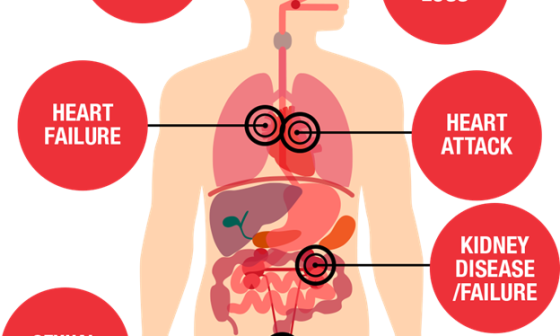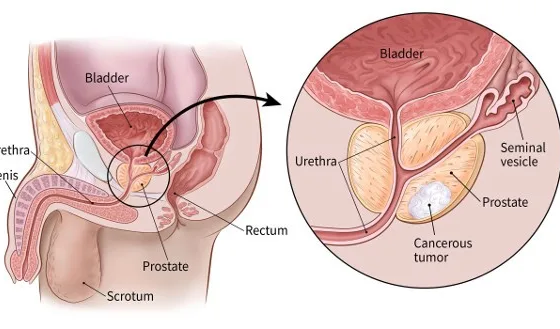Key Takeaway;
- The first thing that tobacco does is harm the immune system, making it very weak and prone to diseases hence you have various diseases caused by smoking.
- The number of diseases you set your body up for because of smoking is unimaginable. And it doesn’t end there
- You can prevent countless diseases by just adjusting your lifestyle – stop smoking.
Smoking and the immune system
Do you know that when your immune system is not working effectively, diseases are able to progress? The immune system is the body’s way of protecting itself from infections; it works to fight everything from cold and flu viruses to serious conditions such as cancer. And various things can interfere with the proper functioning of your immune system, one is – smoking.

Smoking harms the immune system and makes the body weak at fighting disease. This increases the risk for several immune and autoimmune disorders (conditions caused when the immune system mistakenly attacks the body’s healthy cells and tissues). New evidence finds that smoking causes of rheumatoid arthritis, an autoimmune disease in which the immune system attacks the joints and causes swelling and pain.
“Smoking remains the leading preventable cause of deaths and diseases”
The Dangers of Smoking: smokers and non-smokers.
Tobacco smoke contains more than 7,000 chemicals and chemical compounds that reach your lungs every time you inhale. Your blood then carries the poison to all parts of your body. These poisons
-
- damage DNA, which can lead to cancer; damage blood vessels; and cause clotting (which causes heart attacks, strokes);
- and damage the lungs, which can cause asthma attacks, emphysema, and chronic bronchitis.
Smokers are less healthy than nonsmokers, they suffer from health problems for years and eventually die earlier by a decade or more. They also need to go to the doctor more often and they are admitted to the hospital more often than nonsmokers. Smokers miss more work than nonsmokers because of frequent illness.
Chronic diseases are caused by smoking.
- Lung cancerOne out of every three cancer deaths in this country is from smoking. Tobacco smoke contains toxic chemicals that can damage your DNA and lead to cancer. Cancer patients and survivors who smoke are more likely to get a new primary cancer (cancer that occurs in a different organ). Quitting smoking improves the outcomes of cancer patients.
- Chronic obstructive pulmonary disease (COPD)This is an obstructive lung disease that makes it hard for you to breathe. It causes serious long-term disability and early death. Cigarettes cause about 90% of COPD.
- Heart diseasePoisons from tobacco smoke cause dangerous plaque buildup that can clog and narrow your arteries, which means less blood and oxygen flows to your heart. This leads to heart attack, stroke, or sudden death. Even exposure to secondhand smoke can trigger a heart attack or stroke in nonsmokers, hence, be careful.
- Stroke Because smoking affects your arteries, it can trigger stroke. A stroke happens when brain cells are deprived of oxygen and start to die. This is because the blood supply to your brain is temporarily blocked.
- Asthma Asthma is a chronic lung disease that makes it harder to move air in and out of your lungs. Cigarette smoke irritates air passages, it can trigger sudden and severe asthma attacks.
- Reproductive effects on women/fertility and pregnancy For men, smoking causes erectile dysfunction and damages DNA in sperm, which could decrease fertility. Women smoking during pregnancy have a high risk for ectopic pregnancy (when a fertilized egg implants somewhere other than the uterus). They are more likely to have stillbirths, very early delivery, babies born with a cleft lip/palate, have low birth weight, or die from sudden infant death syndrome (SIDS). Tobacco smoke also damages the tissues of the unborn baby’s growing brain and lungs and could interfere with the growth of the placenta. This could lead to miscarriage, premature delivery, or low birth weight.
- Premature, low Birth-weight Babies Smoking doesn’t only affect the mum’s health, it also affects the baby. Also, smoking while pregnant can cause babies to be born prematurely and/or with low birth weight. And babies born too early or too small have an increased risk of health complications and even death.
- Diabetes If you have diabetes and smoke, your risk for kidney, and heart disease is two to three times higher than if you don’t smoke. Smoking increases the risk of complications once diagnosed with diabetes, such as poor blood flow to legs and feet (which leads to infections and possible amputations), blindness, and nerve damage that leads to numbness, pain, weakness, and poor circular ion; and amputations. Smokers who have diabetes also have more difficulty recovering from surgery.Read more about realities and expectations of diabetes here
- Blindness, cataracts, and Age-related Macular Degeneration Smoking can make you go blind. It damages your eyes and can result in vision loss. It is the leading cause of blindness in adults ages 65 and older.
- Over 10 other types of cancer, including Colon, Cervix, Liver, Stomach, and Pancreatic Cancer – are caused by smoking.
Tips for quitting
Cigarettes are designed for addiction. Nicotine addiction keeps people smoking even when they want to quit. The design and contents of tobacco products make them more attractive and addictive than ever before. It is that bad, the addiction is real. But guess what, no matter how bad it is, when you make a decision to quit, you are a step closer to conquering addiction. Here are a few guides to help you quit.
- Identify the reasons and the benefits of quitting.
- Avoid drinking while you’re quitting cigarettes. Drinking alcohol can trigger cravings in the first few weeks.
- Remove tobacco products from your home, car, and workplace
- Resolve not to smoke at all – not even one puff.
- Anticipate challenges, such as nicotine withdrawal, particularly during the critical first few weeks.
- Ask others not to smoke around you. Allowing them to smoke around you can make it harder for you to quit.
- Seek medications and counseling.
- You can quit, I am rooting for you. Let your healthcare provider help you too.
You don’t have to be a heavy smoker or a long-time smoker to get a smoking-related disease. There is no safe level of exposure to tobacco smoke. Any exposure to tobacco smoke—even an occasional cigarette or secondhand smoke—is harmful. You always have to be intentional about staying safe and staying off smoking






